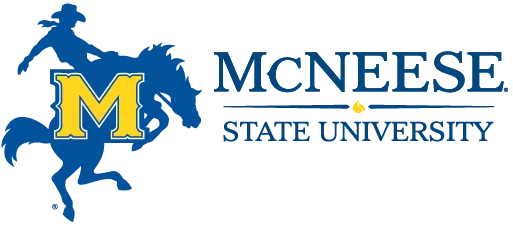Frequently Asked Questions
Your Safety Matters
Jump to:
University Police
Reporting a Crime
Crime Prevention
Parking
Facilities
Services
University Police
What is the role of the University Police Department?
University police have primary responsibility for developing and deploying services, programs and strategies for maintaining a safe campus. University police provide a full range of services 24 hours a day, 365 days a year and patrol campus on foot, ATV, bicycle and vehicle. Some of these services include investigating reports of crimes, conducting follow-up investigations as necessary, and filing criminal charges or referring matters (as appropriate) to another department or agency.
Police operations are supported by a Communications Center, which is staffed by trained dispatchers who answer calls for service, dispatch officers and other emergency services to incidents, operate closed circuit camera systems and monitor intrusion, fire and environmental alarms.
What kind of testing is required to become a University Police Officer?
McNeese State University Police’s staff of 13 police officers, who all have taken a state civil service test, followed by written and essay exams and an oral broad interview. This is followed by a background investigation along with a drug screen. A medical examination is then followed by a physical ability test administered by the police academy.
What makes McNeese State University Police Officers different from all other police officers in Louisiana?
After completing the Basic Police Academy, our university officers are the only officers that receive additional training in:
- Emergency medical response
- Sexual assault response and investigation.
- Crisis intervention
- Homicide investigation
Reporting a Crime
Can I make a police report over the phone?
Usually an official police report cannot be taken over the telephone, but making the phone call is the first step in initiating a police crime report. If you are the victim or witness to a crime, call the McNeese Police Department at 3337-475-5711 and the first available officer will meet with you at the scene of the crime or at the police department. Be sure to tell the dispatcher where you will meet the officer and be prepared to show the officer your identification.
When I call the police, what information should I have ready?
Make sure that you are safe before calling. The information needed will vary based on what is being reported. Not all questions could be applicable to every call. The McNeese Police Communications Center call taker may want to know:
- What is occurring or has occurred.
- Location of occurrence.
- Your name and phone number (anonymous calls are accepted).
- Your location, if different from the location of occurrence.
- The time of occurrence.
- If there are any injuries.
- If anyone intoxicated or under the influence of drugs.
- If any weapons are involved.
- Number of people involved.
- Descriptions of any vehicles involved (license plate, color, year, make, model).
- Descriptions of people involved (gender, race, hair color, eye color, height, weight, scars/tattoos and clothing).
- Direction of travel of anyone leaving the scene on foot or in a vehicle.
- If there are any witnesses, and if so, are they still on scene.
How do I report a non-emergency?
In a non-emergency situation where there is no immediate threat to personal safety or property, contact McNeese police by using any campus phone at 337-475-5711.
Does the McNeese Police Department allow anonymous reporting?
Yes, you may make an anonymous report to the university police. Our Silent Witness Form is available to report a crime anonymously. As a victim or witness of a crime you can also report crimes to Campus Security Authorities (CSA’s) on an anonymous basis. These reports become part of the Annual Security Report crime totals reported by the McNeese Police to the US Department of Education. CSA’s are required to report Clery Act qualifying crimes in a timely manner to the university police.
University police encourage all individuals who report a crime to provide their identifying information if possible. Without sufficient detail and information, an anonymous report might be insufficient for the police to take significant action. A crime victim is never required to make an official police report, but sharing crime information or suspicious activity may prevent a crime or incident from reoccurring.
Crime Prevention
How do I request a presentation by a police officer?
You can request that a police officer give a presentation to your group by contacting Chief of Police Will Scheufens at wscheufens@mcneese.edu or by calling McNeese police at 337-475-5711.
What is a ‘Blue Light’ Police Emergency Phone?
The Blue Light emergency phones are are a direct line to McNeese Police. They are housed in blue towers with a blue light overhead or, in the student parking garage, they are housed in boxes with a blue strobe light. Pushing the emergency phone button will connect you directly to the McNeese Police Communications Center. University community members are encouraged to familiarize themselves with the Blue Light phone locations on campus.
Is it safe to walk on campus at night?
Yes, provided you take some simple steps to enhance your safety. Stay alert and avoid texting, web surfing or calling when you are walking. Travel in well lit, well-traveled areas and try not to walk alone. Familiarize yourself with the locations of Blue Light Emergency Phones around campus and use them if necessary. If you feel unsafe walking on campus alone, McNeese Police are available to provide escort services to and from locations on campus.
Parking FAQs
Are disabled parking and fire zone violations enforced at all times?
Yes. These violations are enforced 24 hours a day. This is to ensure the support and safety of all guests. University parking enforcement staff may issue parking citations for these violations.
Does the university issue disabled parking hang tags?
Yes. Handicapped parking is designated at specific locations throughout the campus and indicated by blue paint and handicapped signs. These zones are in effect 24 hours per day. ONLY those vehicles bearing both a valid McNeese State University handicapped permit and a handicapped license plate or parking tag issued by a State Motor Bureau are authorized to park in these areas. All vehicles without proper identification displayed will be ticketed and may be towed at owner/registrant’s expense.
Why aren’t there more parking spaces on campus?
The university maintains nearly 6,000 parking spaces on campus. While parking on the core of the main campus can become congested during peak use periods (8 a.m. to noon), there is always ample parking within a 5 to 8 minute walk of most classrooms and facilities.
Excess parking is available in the Sale Street lot and in Lot A located at McNeese and Common Streets. Please refer to the campus parking maps to to see the specific lot designations and permit requirements.
Why do I have to pay to park on campus?
The state legislature views parking on university and college campuses in the state as a self-supporting enterprise. Consequently, there are no general state funds provided to the university to run our parking operation.
The $40 annual fee that students pay helps to cover the cost of resurfacing existing parking lots, expanding and maintaining lighting and CCTV cameras. It also helps cover the cost of parking lot maintenance, space striping, our parking management software systems, traffic cones, and other related operational costs.
Students pay a separate $75 per semester fee which is a self imposed fee that students voted and approved in order to build the $14 million student garage. Only students can park in the student garage.
Facilities
I locked my keys in my office – what do I do?
During regular business hours, faculty, staff and students should contact their department heads. After hours or during university closures, faculty and staff should call 337-475-5711 to speak with a McNeese Police dispatcher. A police officer will be sent to your location as soon as one is available. Be sure to tell the dispatcher where you will meet the officer and be prepared to show the officer your driver’s license and university ID card.
The McNeese officers do not open offices for student workers or graduate assistants without prior, written permission from the faculty or staff member to whom the office is assigned.
Does my community group, student organization or club have to pay to have police at our event?
If an entity requests the use of university facilities, the additional cost for police services, custodial, and any damages will be charged to the renting user or group.
The university police has sole jurisdiction of managing the public safety needs associated with an event on campus. The police department reviews each Facility Use Request to determine if security/policing staff are needed. This review involves the estimated size of the event, traffic control needs, if alcohol is served, parking needs, the potential for violence and the policing services that an event may require. The police department also considers the level of need for police officers to be on scene who are trained as Emergency Medical Responders (EMR).
The university police provide security services off campus only for ‘core university events’ such as athletic events, commencement, etc. If a non-core university event is scheduled off campus, then the McNeese Police will provide the group with contact information to contract with officers from the sheriff’s office, Lake Charles Police or Ward 3 Marshal’s Office. The billing for off duty officers for these other agencies are estimated at $40 per hour, per officer usually with a 4 hour minimum charge.
Services
How do I get a copy of a police report?
You may call or come by the police department Monday – Friday during business hours to request a report where you are listed as the victim of a crime or vehicle crash. Please allow 3 to 5 business days before requesting a copy of the report to ensure that the initial case has been entered into the police computer system.
If I’m injured on campus, what assistance would I receive from McNeese police?
All university police officers are trained and certified by the State of Louisiana as Emergency Medical Responders (EMR). Officers are dispatched to all reported injuries and medical emergencies. They will provide initial support and care and determine if a higher level of emergency care is required. The Lake Charles Fire Department is also dispatched to provide assistance at all significant vehicle crashes as needed.

